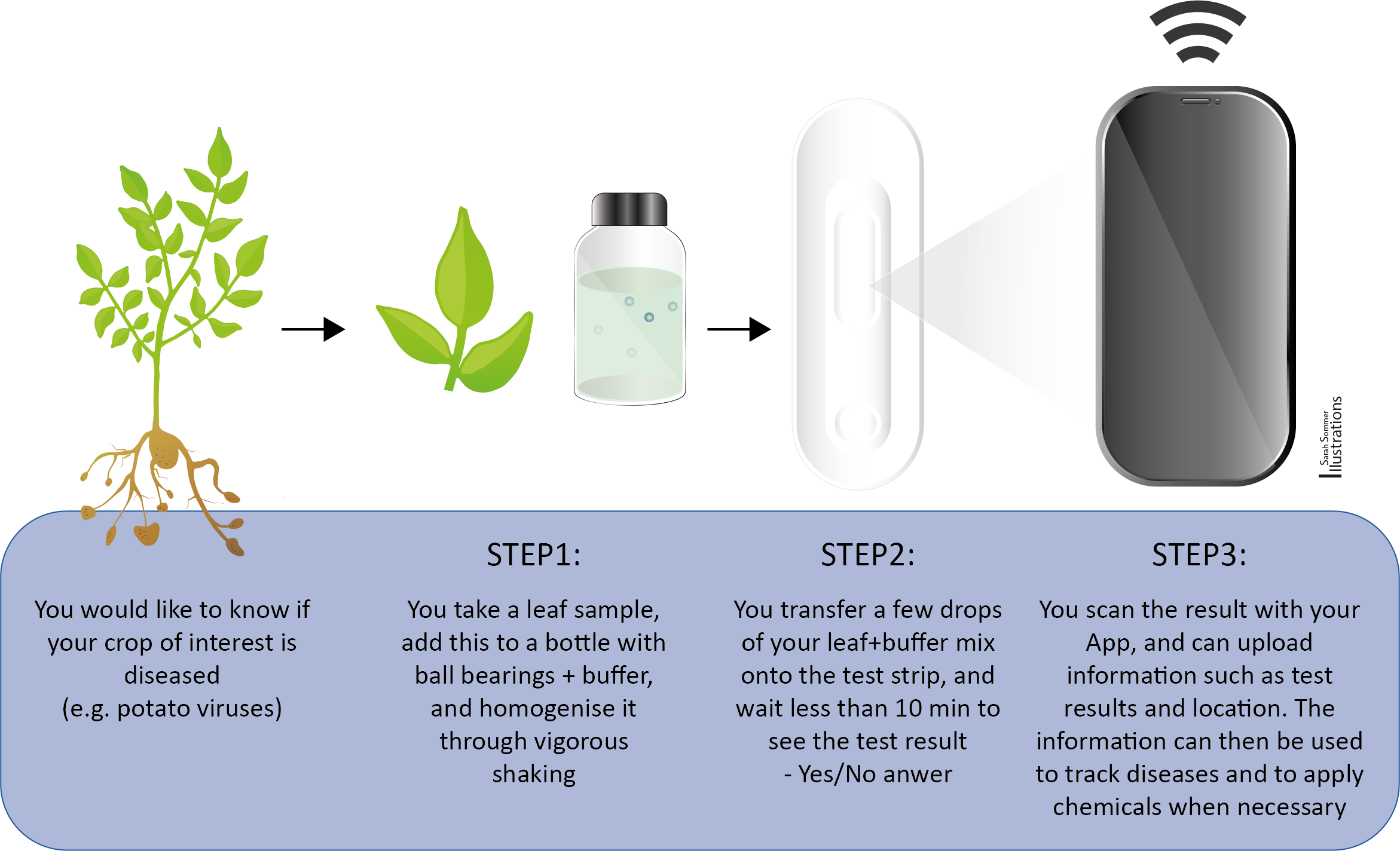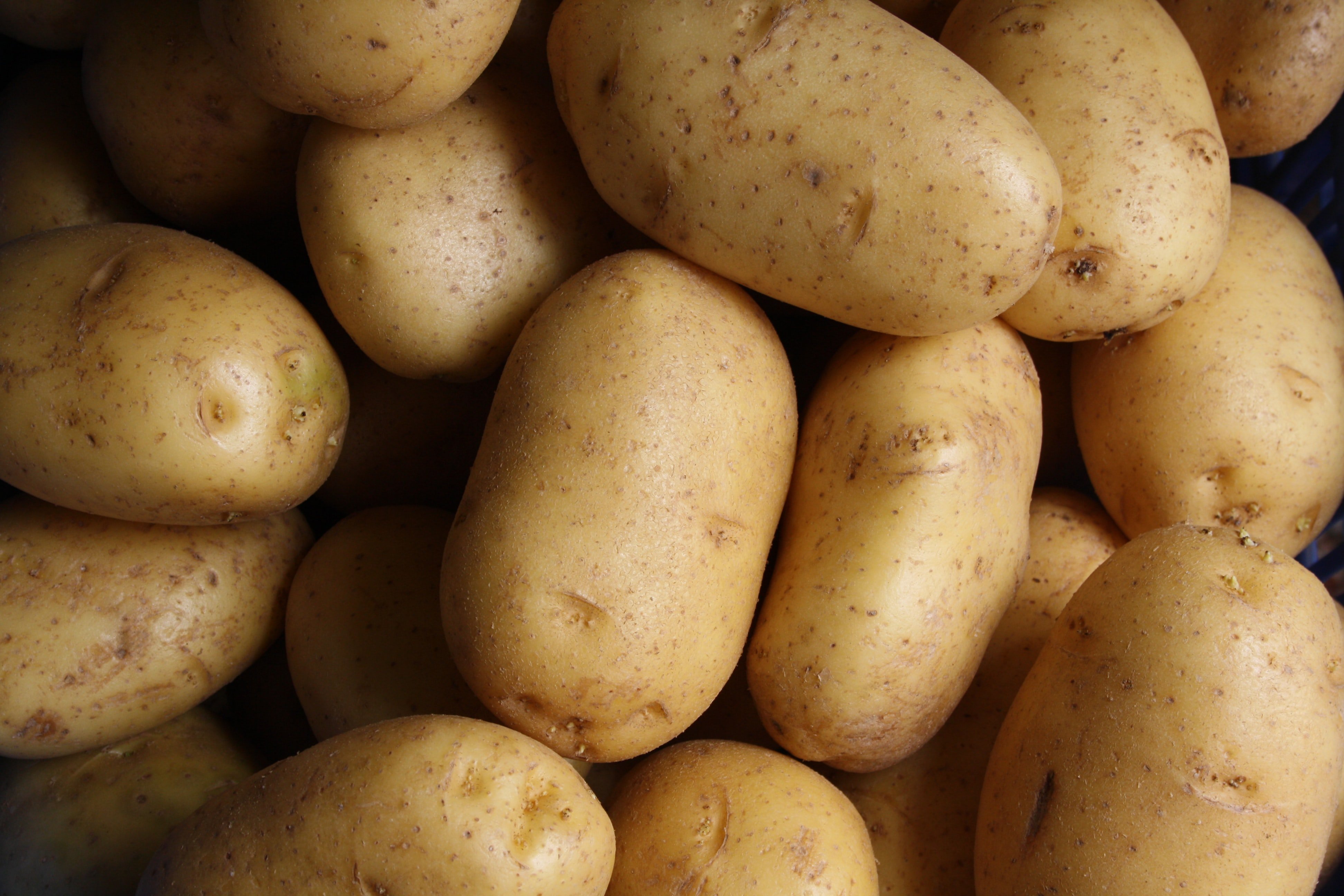The biggest challenges of the 21st century are population growth, scarcity of resources and climate change. To meet the challenge, we need to establish new approaches to sustainable food production.
To help tackle the challenge of sustainable food production, we are developing a digital agronomy system that aims to increase the precision with which agro-chemicals are applied.
The tool we are developing is called "Spot-On Agri-Diagnostics."
It is based on cost-effective tests - multiplexed lateral flow assays - coupled with an app. They resemble pregnancy tests, but allow fast detection of multiple diseases.
We're currently focused on potato viruses, but the versatility of our digital agronomy system allows for a wide range of applications within the potato market and beyond. Horticulture, cereals and ornamentals are all potential application areas.
Market Research
We would like to know how our tool can be used in a practical environment. We would love to hear your feedback, insights, and opinions. Growers, breeders, agronomists, trade associations, plant clinics, food processors, authorities ... everybody is welcome to contribute.

The Challenge
Estimates of crop losses range between 25-40%.1 Crop losses can be prevented through pre-harvest crop protection schemes such as soil management, crop rotation, and chemical treatment. Growers can also make use of resistant and high-yielding cultivars from marker-assisted breeding or gene-editing.
Both biotic and abiotic factors need to be tackled.
Biotic factors are living components with impact on the ecosystem, and describe plant damage or plant diseases by pests (e.g. nematodes, insect herbivores) and pathogenic microorganisms (e.g. viruses, bacteria, or fungi). In contrast, abiotic factors are non-living components affecting ecosystems such as drought, nutrient scarcity, or extreme temperatures.
Both biotic and abiotic factors reduce productivity due to smaller yields or reduction in market quality (e.g. aesthetics or contamination).
Reducing over-use of chemicals
To protect yields and market quality, a range of plant protection products are available including agro-chemicals.
They are quickly accessible, relatively cheap, convenient and effective. However, over-use is damaging for the environment, human health, and drives resistance.
Additionally, many active ingredients in agro-chemicals have been withdrawn due to safety concerns, whilst the cost of discovery and registration of new compounds is becoming the limiting factor for the availability of future products
Crop monitoring that is cheap, easy-to-use, and reduces agro-chemical use is needed.
Spot On is a tool that addresses this need. Using agri-diagnostics tools we hope to enable precise application and point-of-need use of agro-chemicals, reducing the overall volume of products used.2
Background to our product development
This product is being developed at our University, and the market research conducted through the ICURe scheme.
ICURe stands for Innovation to Commercialisation of University Research. It is a four month full-time course, during which teams invetigate the market potential of a commercially-promising idea.
Our team comprises an Early Career Researcher (me), a Principal Investigator, a Technology Transfer Officer, and an external Business Advisor. The course enables idea testing and market discovery activities. This includes conversations with a wide range of stakeholders. The overall aim is the creation of a business model plan.
References
- E.-C. Oerke, “Crop losses to pests,” J. Agric. Sci., vol. 144, no. 01, p. 31, Feb. 2006
- https://www.eppo.int/ACTIVITIES/plant_protection_products/registered_products
Links and Related Items
- Register your interest in the Spot On Agri Diagnostics tool
- Spot-On Agri-Diagnostics
- Agricultural Production System Research
- Newcastle University Farms
Contact details
- Dr Sarah Sommer, Research Associate in Molecular Diagnostics
- Email: sarah.sommer@newcastle.ac.uk | LinkedIn | Twitter
Photo by Lars Blankers on Unsplash.


